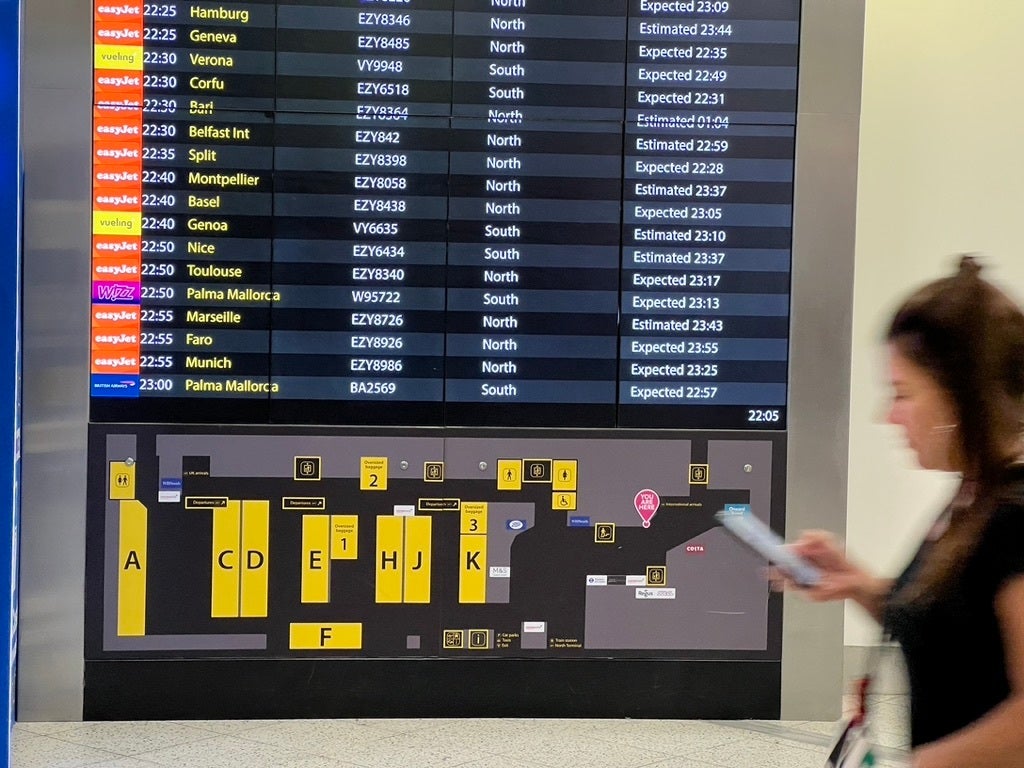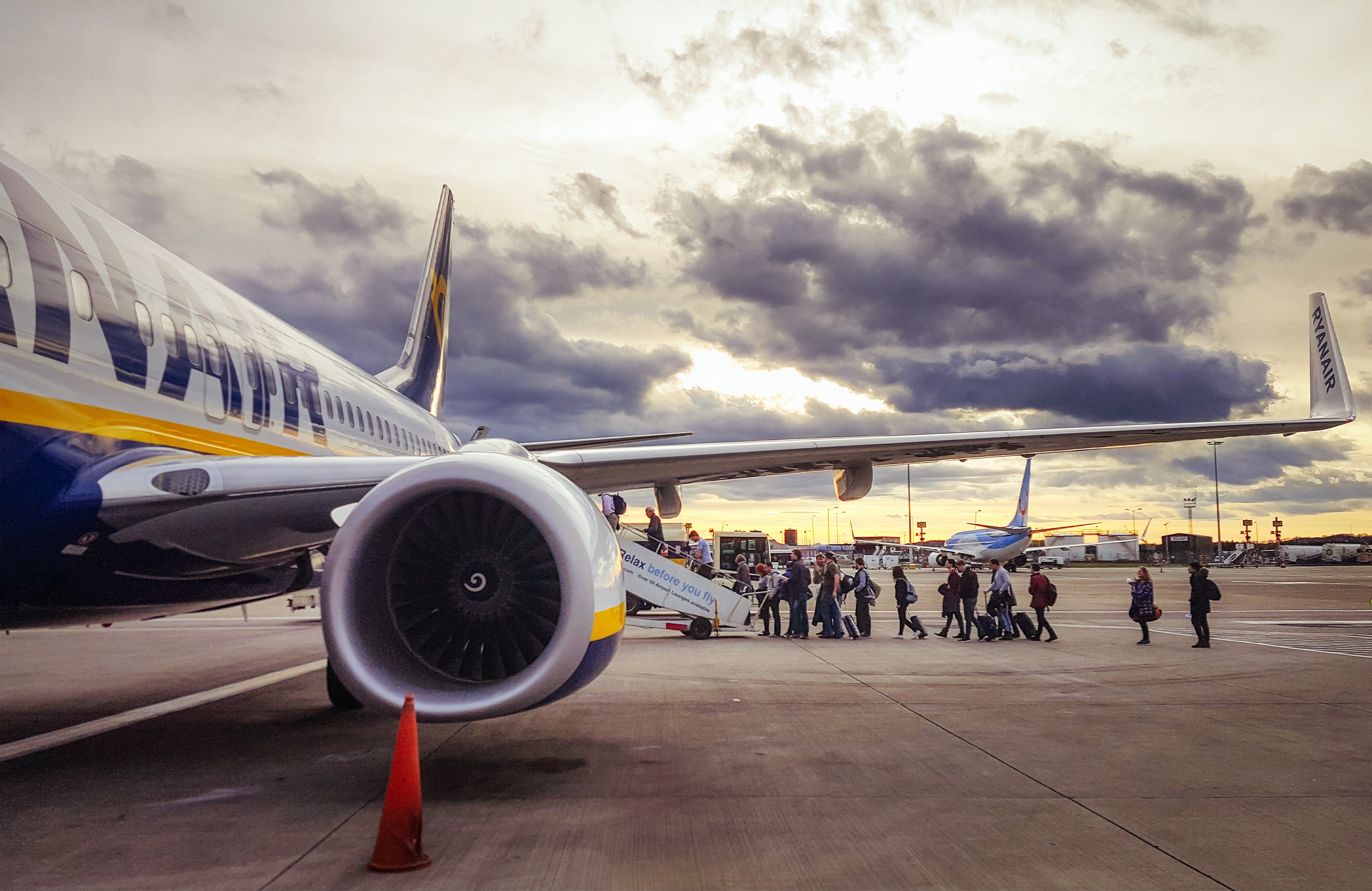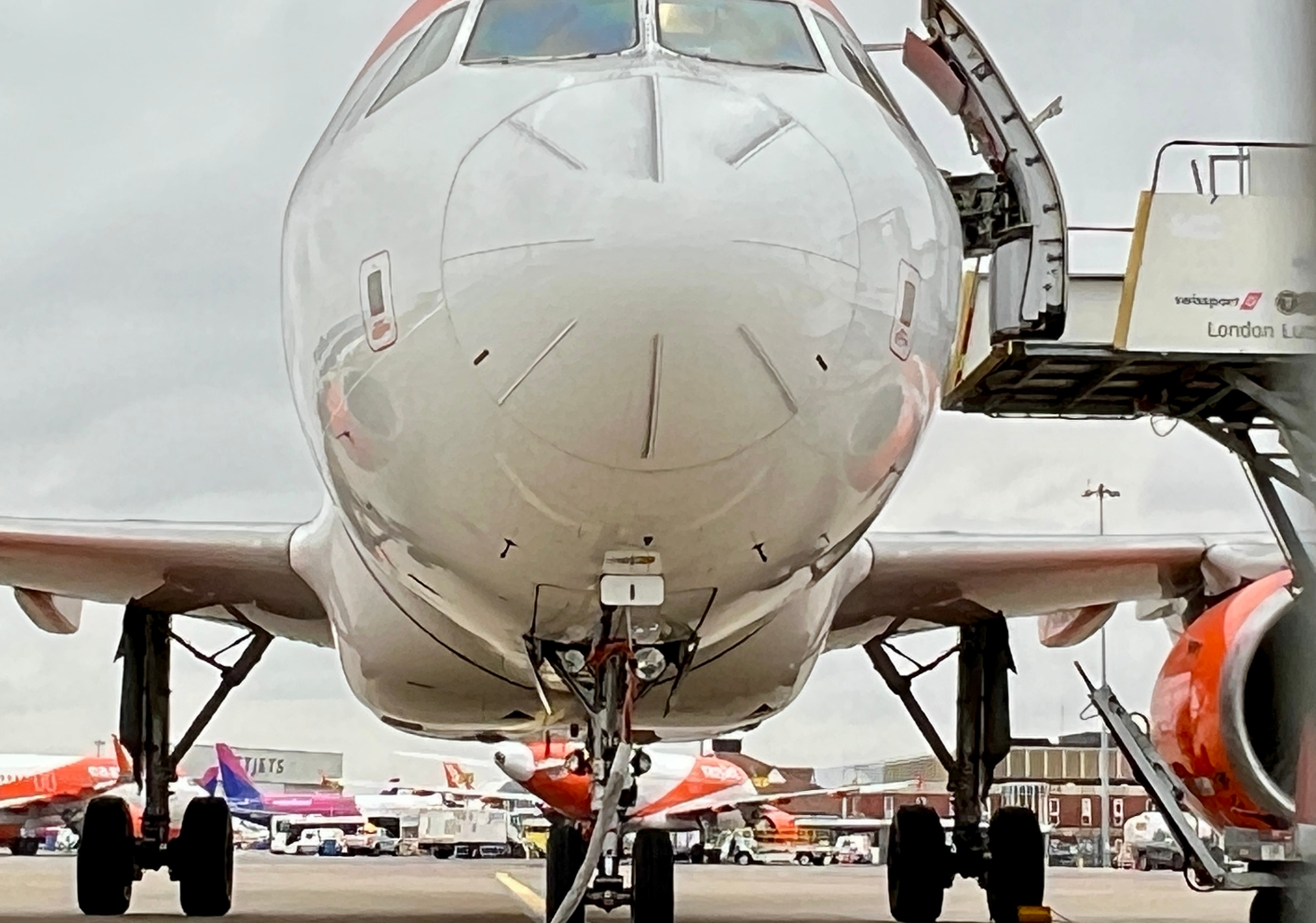Can I still claim overbooked plane cash after flying as planned?
Simon Calder answers your questions on missed departure fees, price variations to reach Belfast, paying extra for plane seats, and compensation for overbooked flights


Q I was flying on Friday morning to meet my family in Switzerland for Christmas. At the airport departure gate I was stopped and told I might not be able to travel because the flight was overbooked. I was told there was a later flight in a few hours and that I would get €300 (£250) in compensation. As a student I was happy to take the money. But then they said I should wait by the gate in case there were any “no shows” for the flight. There were, and so I flew as planned – but only after having my hopes raised and also hanging around not knowing what would happen. Do I have any legal entitlement to the money I was offered and accepted in good faith?
Name supplied
A Bad luck. I am always in the market for being offloaded, and the situation you describe – with a replacement flight soon afterwards – is ideal for earning some cash in time for those post-Christmas credit card bills.
Airlines routinely overbook. The practice generates extra cash and most of the time they get away with it; easyJet says on average five per cent of passengers don’t show up. Your carrier has done one thing wrong, and that is tell you that you might not be able to fly, rather than ask you if you wanted to volunteer – which, naturally you would have accepted. Under European air passengers’ rights rules, carriers must seek volunteers by offering inducements before denying boarding to anyone against their will. But there is evidently no penalty, since airlines breach this regulation frequently.
On a fair number of occasions I have been in the position of accepting an incentive to travel on a later flight with the caveat from the airline that this will apply only if the plane fills completely. Most of the time, I have travelled as planned (usually in a middle seat, down the back, next to the loo).
Just as the airline is taking a bet when it sells more tickets than there are seats available, you and me are wagering we will be able to secure some cash. But we have to accept, if our boarding pass comes up, no gain. There is no financial obligation on the part of the airline, though I think your offer to help address a problem of the carrier’s making should be recognised by, say, a free drink on board.

Q When you were writing about the collapse of the Stansted Express you mentioned a “missed departure fee” of £100 for Ryanair. That’s good to know because £100 is peanuts compared with the hundreds spent on hotels, etc, at the other end. How long after the flight can you avail of this?
Simon W
A The context: cable theft in the early hours of yesterday morning meant the first 17 Stansted Express trains from London to the Essex airport were cancelled. I fear hundreds – if not thousands – of outbound passengers missed their flights. Most of them will have been on Ryanair, which has 78 per cent of the operations at London Stansted airport.
Ryanair has long had a “missed departure fee” to help people who, for whatever reason, arrive too late to catch their flight – the normal cut-off being 40 minutes before departure. If you arrive at the gate – or the airport ticket desk – up to an hour after the missed departure you can pay £100 (per person) to move to the next available flight. This applies year-round, but at peak times the next available flight may be some time away.
An excellent example of how it works is provided by the Thursday morning departure from Stansted to Vienna. It departed at 9.45am, which was exactly the time the first Stansted Express pulled into the airport station. By definition, all the passengers destined for the Austrian capital who were on that train missed their flight. While £100 might seem steep, it was a lot less than the price of the evening departure. In addition, travellers who had paid for a bag to check in or take on board had that carried over to the next available flight, too. (Seat reservations are obviously toast, so you just have to take what you can get.)
Once the Thursday evening flight had filled, you could still have paid £100 to travel out on the first Friday morning departure, which had a cash price of £140 one-way. But since that would probably have involved a Stansted airport hotel, I think most people will have opted for Wizz Air from Gatwick yesterday evening, which had plenty of seats at £135. EasyJet has a similar option, called a “rescue fee”. It costs £110, but is a bit more generous than Ryanair in that it allows you to arrive at the airport up to two hours late.

Q I am looking at my screen in disbelief. At short notice I need to travel from my home in Fife to Northern Ireland tomorrow. Ryanair has two flights from Edinburgh to Belfast International. One is priced at £21, the other at £273. How can the airline possibly justify such a difference for the same 50-minute flight?
Margaret B
A Fifty minutes? On a good day the Ryanair Boeing 737 can make the 143-mile hop in less than half an hour. That Friday afternoon flight, leaving the Scottish capital at 3.25pm, will prove extremely lucrative for Europe’s biggest budget airline. The current high fare suggests that almost all of the seats are booked, which indicates to me that Ryanair will earn revenue of £12,000-£15,000 on that particular flight.
In contrast, the early flight at 5.45am looks like losing Ryanair a lot of money. The airline will be hoping for a late-notice surge in bookings. That may indeed materialise – not least because the closure of the port of Holyhead has distorted travel patterns across the Irish Sea, with extra pressure on ferries and flights between Scotland and Northern Ireland.
The extreme difference is explained by passenger demand. Ryanair has a stated policy of being “yield passive, load factor active”. In actual English that means the airline will cut the fare as low as necessary to fill the aircraft. Ryanair would much fly 180 people paying a basic fare of £21 than 90 at £42. As all long-standing passengers with the carrier know, the basic fare is just the beginning; if you want a particular seat, or baggage bigger than a small backpack, you will pay extra.
From the passenger’s perspective, it’s good to have a choice. For a 5.45am flight even I would plan to reach Edinburgh airport by 4.30am, which means waking up at silly o’clock even if you were staying at one of the Edinburgh airport hotels.
Transport to the airport is also potentially expensive. Airport buses run from central Edinburgh and also from Dunfermline in Fife right through the night, but from other locations a taxi might be necessary. All in all, the afternoon hop looks far more civilised. But I would definitely be on the early plane and use the saving for more exotic travel.

Q I booked flights from Porto to Glasgow on easyJet, and then the aircraft changed. The seats I paid extra for – immediately behind the emergency exits – were moved. It took me 90 minutes holding on the line before I could speak to an actual person and get the original seats restored. Something similar happened on flights to Miami with British Airways, and I am still trying to get the seat charge refunded. Any advice?
Gerald T
A My honest advice is: please don’t pay to book seats in future, at least not on easyJet or British Airways.
These airlines have a couple of things in common. The first is their wide range of aircraft. EasyJet has three basic sizes: A319, A320 and A320. While the interior diameter is exactly the same for each, the length of the plane is not. The layout of these are all different; in particular, the row behind the emergency exit has a different number in each type.
British Airways currently uses the Airbus A380 on both its daily flights to Miami. But with just a dozen of these double-deck “SuperJumbo” jets in the fleet, if something goes awry, the flight could be switched to a significantly smaller Airbus A350, Boeing 777 or 787. All the seat assignments are thrown up in the air and reassigned (possibly with some passengers being transferred to other flights, given that a full A380 has at least 200 seats more than BA’s other wide-bodied aircraft).
Airlines are thrilled that passengers are prepared to pay extra for something that previously was provided free: the guarantee of sitting together. Yet in my experience, both British Airways and easyJet are fastidious about ensuring people on the same booking are seated together even if they choose not to pay for advance seat selection. I have never known a situation in which I have been seated apart from my companions (as opposed to Delta Air Lines and Ryanair, with whom I would never rely on the same courtesy). So just stop paying extra on BA and easyJet.
Email your question to s@hols.tv or tweet @SimonCalder






Join our commenting forum
Join thought-provoking conversations, follow other Independent readers and see their replies
Comments